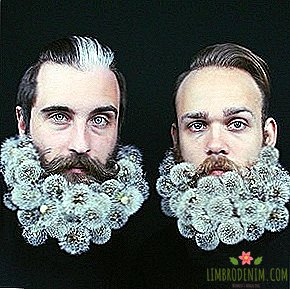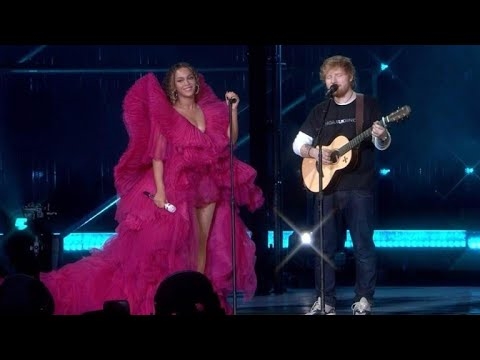I do not want to be beautiful: As students rebelled against the contest "Miss University"
Catwalk, expensive evening dresses to the floor and the crown as a reward for the winner, these familiar attributes of "beauty contests" are already routine for prestigious Moscow universities. Competitions of attractiveness universities take turns in spring, and their format almost completely coincides with global samples like Miss Universe or Miss Russia. So it was for many years in a row and it seemed as if it was a given, but this year students and some of the teachers of the Higher School of Economics rebelled against the "Miss HSE" competition - there was a scandal and a wide discussion. Following its participants, we understand what beauty contests are bad for, why it is no longer fashionable and even offensive.
"Miss HSE - 2014"
Who started first?

Criticize a beauty contest in the "HSE" began three years ago. The publicist Kirill Martynov wrote that the contest is appropriate only in a parody format - if men compete with women in charm and charm. He was supported by political analyst Sergei Medvedev, calling the competition a sexist ritual of the patriarchal society, which has no place within the walls of a liberal university.
A year later, Ella Rossman, an activist and university graduate (then still a student), launched an online flashmob against competition, saying that the university should not use girls as "cute toys" to entertain the public and accusing the organizers of sexual objectification and the spread of gender stereotypes. Rossman was supported by other students. For example, Arseny Khitrov spoke against building a hierarchy according to the canons of physical attractiveness: "The university is not a place where you should be judged by how you look. More importantly, you know how you think and what you can do with your knowledge." The student, Rosa Verkhozina, agreed that beauty contests in universities are a sexist atavism, and the fact that they are supported as a student initiative is "of course disgraceful."
The current scandal provoked the activity of the Miss HSE organizers: this year they suggested not just holding a competition, but registering it as a student organization, which would allow the university’s brand to be used and receive support, including financial support. Protests of the university community resulted in a discussion at the student council. The manifesto of Ella Rossman was read on it: students should not be perceived as "university decoration", sexism in the workplace and stereotypes that interfere in everyday life grow from such rhetoric. However, the discussion did not change the fate of the competition - the Student Council voted in favor.
Soviet beauty

"Beauty contests" in universities are almost no different from national or even planetary. But if in the world this practice has remained a mass culture relic and has not yet fallen into the walls of liberal universities, it has firmly established in the CIS in almost all collectives where there are women. “I can’t imagine the Miss Columbia University competition. If someone came up with such a proposal, the university would just have blown up within ten minutes,” Sergei Medvedev said.
In Russia, attractiveness contests are held at factories, in large state corporations and small companies — be it Miss Siberian Chemical Plant, the All-Russian Miss Office clerk competition, or a beauty contest in Gazprom’s regional branches. The most glaring story of corporate entertainment was the case in the Mordovian colony IK-14, where the ex-participant of Pussy Riot Nadezhda Tolokonnikova was serving a term. She was denied parole because the activist did not participate in the local Miss Charm contest.
Political analyst Sergei Medvedev considers the Tolokonnikova case to be an excellent metaphor: a woman imprisoned in a “prison” of her own body is in a “colony” of male interest. Whatever additional criteria are added to “beauty,” the goal of selection remains the same: “You can say:“ See how she dances, sings, solves a mathematical problem. ”Anyway, in the framework of the competition this will be regarded as a bonus to beauty and sexual attractiveness.” - explains Medvedev.
"To hold a beauty contest is much easier than organizing a chess tournament in Mordovlag"
Russian universities in this sense are the same heirs of the "Soviet". Old traditions are sacredly honored here, and Westernism is often considered ideologically alien and even dangerous. “Many Russian universities are designed according to the model of military schools,” cultural scientist Yan Levchenko explains. “It’s not surprising that girls in the post-Soviet space, where the old teaching tradition was not reflected, were simply accepted as a given, girls construct their identities with an eye to men's needs and agree to take part in humiliating contests. "
To hold a beauty contest is much easier than organizing a chess tournament in Mordovlag. Beauty (it is presented as an undeniable benefit) is supposedly appreciated by anyone who wants it - unlike the skill of choreography or vocal. Older universities on the East Coast have been holding orchestras since the 19th century, Levchenko says, all states have their own baseball or basketball teams that compete with each other: "But if there are no such traditions, the administration has to arrange some kind of average leisure Beauty contest". In addition, any competition where a skill is evaluated immediately narrows the potential audience, and the visual appeal is accessible to everyone and will most likely collect a full assembly hall, unlike the competition of readers.
Preparation for the contest "Miss Moscow State University - 2017"
From Kaliningrad to Vladivostok

The geography of student beauty contests in Russia is striking in scope. They are conducted in almost all regional universities - from the Kaliningrad region to the Primorsky Territory. In some regions they are not limited to competitions on the basis of specific universities - they also choose, for example, the "Queen of Universities" of the Kemerovo Region.
The richer and more prestigious the university, the more pompous the event. While in small universities, the competition is more like the initiative in the Soviet House of Culture (the costumes, playlist and program are on the conscience of the participants and students), then universities like MSU or HSE rent huge concert halls in the center of Moscow (for example, HSE held its competition in theater "Russia", the former cinema "Pushkin"). Beauty contests in these universities acquire large sponsors - at various times they became the lingerie store “Defile”, the hotel “StandArt”, the cinema chain “Cinema Park” and the large office brand Erich Krause. In general, they are almost as good as the large Russian beauty contests, which play up expensive prizes and promise participants a ticket to the modeling business. By the way, in 2014, the winner of "Miss Higher School of Economics" received a two-week trip to New Zealand as an award, and "Miss Moscow State University - 2017", thanks to the contest, traveled to Paris.
In addition, every year the competitions "Miss Student of Russia" and "Miss Student of Moscow" are held, approximately the same in size and complexity of the organization. In the description of "Miss Moscow Student" stipulates that this is "not an ordinary" glossy "contest - its participants represent not only themselves, but also their own university." That is, not only appearance is important, but also “sociability, creativity, socially active position”. "At the Miss Moscow State University, both the audience and the jury pay great attention to the spiritual component," says Vladimir Marchenko, vice-rector for extracurricular activities at Moscow State University.
“For ten years of competition, no one criterion of beauty or one discriminatory criterion has been formulated on any billboard or document,” Yury Korchagin, one of the organizers of Miss NRU HSE, insisted on the HSE college council. “The only requirement is to send an application for our mail. " According to him, absolutely everything is allowed to the first stage of the competition, but then those who can go through "a difficult two-month training" are selected further.
In other words, university beauty contests use approximately the same formulas as national competitions: "Appearance is not everything."
Blood and sweat

The preparation of the "Miss Moscow State University", starting from the collection of questionnaires to the final stage, takes 5-6 months, says Vladimir Marchenko. And the jury consists of half of the administration of the university - including scientists who are engaged in "the study of aesthetics and other disciplines close to the specifics of the competition." The second half is journalists, representatives of model agencies and show business, they evaluate the "professional component" of the competition. In 2017, the jury included graduates of Moscow State University Valdis Pelsh, Marianna Maksimovskaya and Alexey Pivovarov.
The Miss HSE organizers are also talking about a serious approach: "Everything looks very professional - the competition can be shown, if not on Channel One, then on Yu TV channel for sure." The program is standard: defile, answers to questions of the jury, creative numbers. In HSE, besides this, girls are still preparing a video where they have to tell about their hobbies and talents in free form - something like a portfolio on the projector screen.
Preparation for the competition, therefore, quite strongly pulls out of the learning process. “In preparation for the competition, I spent a lot of energy, nerves and money, and I also missed almost a month of study, but I didn’t get the result, that is, the crown,” Tanya from Moscow State University, a participant in the faculty contest Miss Economy, said much more modest in scope than a university competition.
"The schedule was very tense: rehearsals, shooting, rehearsals again, lack of sleep, rehearsals again. I had to sacrifice my studies, then catch up"
“It’s difficult to walk in heels, it’s very difficult to walk on heels for fourteen hours at rehearsal. I fell out of my life for two weeks, didn’t go to university. I left home at seven in the morning, returned at midnight,” explains journalism student Yulia, participant "Miss HSE". Dasha from Bauman Moscow State Technical University says that she was preparing for the final for two months: "The schedule was very tense: rehearsals, shooting, rehearsals again, lack of sleep, rehearsals again. I had to sacrifice my studies, then catch up."
The organizer of "Miss HSE" Yuri Korchagin is sure that the preparation for the competition is an invaluable experience. Participants are taught to "serve themselves": walk on the catwalk, dance, sing and even speak. Attract professional choreographers, vocal teachers and coaches for public speaking. Services are usually provided by companies on a barter basis - that is, in exchange for a place among the sponsors.
Speech by Carolina Ponomareva
School of Life

University beauty contests are a commercial enterprise. The organizers of the HSE are proud that they are holding a competition for sponsorship, that is, for the third year (out of ten years of the competition) they don’t ask the university for money. Students from the competitive headquarters, with their words, get experience in organizing events, engage in SMM and design the show, contact sponsors — that is, overgrow with connections and get a chance to “boost skills”. Vladimir Marchenko, vice-rector of Moscow State University, recalls that a beauty contest is a leisure for the university community, which is inexpensive, and you can get to a high-quality show for only 400-500 rubles.
The organizers of the competition focus attention, if not on profitability, then at least on its payback. Well, opponents remind you that you can earn money in high school not only on projects with a touch of sexism. In the Higher School of Economics, for example, there is a "Business Incubator", where students are helped to develop start-ups, and in general in large universities there are many places where you can be active.
And yet money does not solve everything. Pro-rector of Moscow State University for extracurricular activities recalls that beauty contests at the university create "the right atmosphere in which it is pleasant to learn and teach" and remind of eternal values: "This is not just a tribute to fashion, but an opportunity to touch something beautiful again" .
What motivates students?

You should not assume that beauty contests are fun for the conservative administration. Ola Gracheva, a graduate of the Moscow State University Faculty of Journalism, unexpectedly spoke at the discussion in HSE in support of the competitions. Such contests do for women "much more than most heterosexual white cisgender men who talk about discrimination and vulgarity," she literally said.
Students really consider these competitions not just a fun way to spend time or participate in a university initiative. The beauty contest becomes for them an attempt to solve psychological problems, for example, with self-esteem.
Tanya from Moscow State University claims that she participated in Miss Ekonom in order to prove to everyone, and first of all to herself, her own attractiveness. Left without a crown, she is going to participate in a new competition. “These contests are the apogee of female perfectionism. The desire to attract attention will always be in me, and I believe that it is better to realize this and accept such a feature than to hide it unconsciously all my life,” explains the student. The second part of the explanation is about the “complex of excellent students”, which seems to fit the model of a student from one of the country's best universities (which promises her a brilliant career), but she is not satisfied with this, but also seeks to designate herself as the most beautiful among her peers .
“I was discriminated against at the competition only once, forcing me to wear a bra on a defile. And when I came to the selection with a tattoo and shaved temples, no one had anything to do with it”
Contest participants say they are also perceived as a chance to show hidden talent. That is, they go to beauty contests instead of taking part in a dance competition or pop vocal. One of the students says that she quit rhythmic gymnastics — she was forced to leave professional sports because of an injury. At the "Miss HSE" she performed with a dance number and "closed the gestalt."
A similar explanation from the "Miss HSE - 2014" Carolina Ponomareva. In her first year at the faculty of political science, she realized that she did not want to work in the Moscow government, but wanted to study vocals: "My parents said that I should do something serious. But I had a song that I wrote myself, and I wanted Someone heard her. Just to be given the opportunity to go to the stage once, and I would shut up! "
“I was discriminated at the competition only once, forcing me to wear a bra on a defile. And when I came to the selection with a tattoo and shaved temples, nobody would care. In this form,“ Miss Russia ”would be close to me They did not do it. I said back then: “Do not look at what I look like a lesbian-buchy - I have a dream”, “- Karolina protects her beauty contest. The organizers of Miss Higher School of Economics also like to say: "Look, in fact, very few of the participants fit the criteria of" model appearance ", personalities are gathered here."
The plot of the contest "Miss Moscow State University - 2017"
The evolution of dignity

Why are beauty contests so popular in Russia? Culturologists believe that the main reason is the Soviet past, in which a woman had almost no chance to publicly declare her attractiveness. In the late 80s beauty contests became the harbingers of a sexual revolution and almost a tool of emancipation.
During perestroika, beauty contests in the USSR turned out to be the very avant-garde platform where women could fix the right to attractiveness and sexuality. “The girls who participated in such contests claimed their right to be not only a woman in an orange vest who turns the rails, but also a diva on his heels. This 90s movement was a response to the firmness of Soviet life, its patriarchy and homeostroy”, explains cultural Levchenko.
Interestingly, the first beauty contest in the Soviet Union "Moscow Beauty" in 1988, held at the initiative of the authorities. This has become one of the symbols of perestroika — with its political freedoms and new rights. University competitions at first also served to destroy the stereotype "a smart girl can not be beautiful," giving students the opportunity to look at themselves in a new way.
But almost thirty years have passed since then, the sexual revolution logically led to a dispute about rights and dignity, and beauty contests with all their role-playing atavisms have not disappeared anywhere, and continuing to serve "traditional values".
Cover: Andrey Kuzmin - stock.adobe.com




